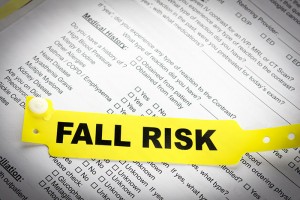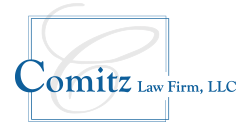 Patient falls are a frequent cause of hospital injuries. An estimated 700,000 to 1,000,000 falls occur in United States hospitals every year, causing about 250,000 injuries and as many as 11,000 deaths. It is estimated that one-third of all hospital falls are preventable.
Patient falls are a frequent cause of hospital injuries. An estimated 700,000 to 1,000,000 falls occur in United States hospitals every year, causing about 250,000 injuries and as many as 11,000 deaths. It is estimated that one-third of all hospital falls are preventable.
Injuries sustained
In addition to fatalities, falls at a hospital can result in serious injuries including:
- traumatic brain injuries
- neck damage
- internal bleeding
- bone fractures
Legal theories
Depending on the facts, patient fall lawsuits can be brought under the legal theory of medical malpractice or that of premises liability.
If the fall occurred due to medical errors during the patient’s care, it’s probably a malpractice case. If the fall had nothing to do with the patient’s medical care, it’s likely a slip and fall case.
Proving a slip and fall claim typically requires showing that the owner negligently failed to keep the property reasonably safe from dangerous conditions that could cause a fall. To prevail in a medical malpractice claim you must prove medical negligence. A doctor, a nurse, or some other member of the medical care staff must have failed to act with the same level of care and skill as a person with the same training and experience would have acted under similar circumstances.
Differences Between Medical Malpractice and Premises Liability
- Complications and cost. Malpractice claims are almost always more complicated and costly than slip and fall cases. To prove that a doctor or a nurse was negligent, you’ll need another doctor or nurse with similar credentials and experience to review the facts and offer opinions. Premises liability cases are less likely to involve expert witnesses.
- Jury sympathy. Juries often sympathize with doctors and nurses, believing that even when they make an error, they’re still trying to do their best. Most property owners don’t get the same sympathetic treatment.
- Damage caps. Most states cap damages in medical malpractice cases. Specifically, other states cap damages for injuries like pain and suffering, emotional distress, loss of enjoyment of life, and disability or disfigurement. However, Pennsylvania currently does not cap the total amount of compensatory damages that plaintiffs can recover in medical malpractice lawsuits.
Scenarios which may support a medical malpractice lawsuit
- Failing to take appropriate measures (such as making sure bed rails are utilized) to prevent falls by a patient known to be a fall risk.
- Failing to diagnose a condition like a stroke, dehydration, or fainting that could make a patient a fall risk
- Failing to designate a patient with known conditions that contribute to fall risk as being at risk
- Failing to recognize that medication(s) the patient is taking affects his or her balance, increasing the risk of falls
- Failing to assist or supervise the patient.
If the patient falls as a result of the hospital’s breach of duty, and is injured as a result, they may have a claim for medical malpractice.
Common causes of injury in typical premises liability case
- Damaged floors that haven’t been properly repaired or maintained
- Equipment such as carts, trays, or cords left in a walkway where it could present a trip hazard
- Inadequate lighting
- Spills that aren’t cleaned immediately
- Poorly maintained handrails and stairs
- Slippery floors left wet after mopping
- Lack of signage warning of danger
Under Pennsylvania’s premises liability, laws classify patients as invitees to the facilities where they seek medical care. Property owners owe invitees a higher standard of care than that owed to licensees and trespassers.
Restatement (Second) of Torts § 343 provides that a possessor of land is liable for physical harm caused to his invitee by a condition on land if, but only if, he or she:
(a) knows or by the exercise of reasonable care would discover the condition, and should realize it involves unreasonable risk of harm to such invitee, and
(b) should expect that they will not discover or realize the danger, or fail to protect themselves against it, and
(c) fails to exercise reasonable care to protect them against the danger.
An ordinary slip and fall at a hospital more likely will result in a premises liability claim. The accident would need to be unrelated to the reason why the patient is seeking treatment at the hospital.
Attorney Jonathan Comitz and his team are highly experienced and knowledgeable in both premises liability and medical malpractice. If you or a loved one has experienced a fall at a healthcare facility, call Comitz Law at 570-829-1111 or email info@comitzlaw.com.


